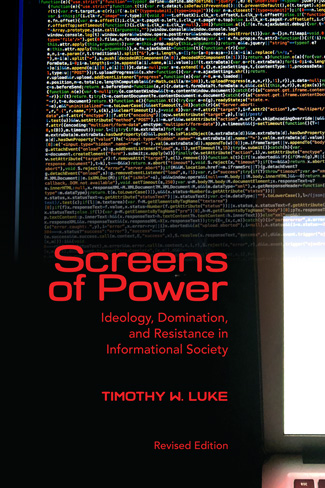The video of the seventh webinar in the Telos-Paul Piccone Institute’s Israel Initiative is now available and can be viewed here. Titled “Online Antisemitism after October 7,” the panel featured Matthias J. Becker, who discussed “Antisemitism after October 7: Insights from Social Media Studies,” and Günther Jikeli, who addressed “Antisemitic Mobilization across Ideological Borders through Social Media.” Their conversation was moderated by Israel Initiative director Gabriel Noah Brahm.
|
In today’s episode of the Telos Press Podcast, David Pan talks with Georges Van Den Abbeele about his article “Can the Precariat Be Organized?: The Gig Economy, Worksite Dispersion, and the Challenge of Mutual Aid,” from Telos 198 (Spring 2022). An excerpt of the article appears here. In their conversation they discuss the history of the welfare state in the context of mutual aid, the idea of the “precariat” and how it relates to the idea of the working class and the question of mutual aid, and the new forms of mutual aid that are now possible with the rise of both the gig economy and new forms of social interaction. If your university has an online subscription to Telos, you can read the full article at the Telos Online website. For non-subscribers, learn how your university can begin a subscription to Telos at our library recommendation page. Print copies of Telos 198 are available for purchase in our online store. In today’s episode of the Telos Press Podcast, David Pan talks with Linus Recht about his article “After Desire: Foucault’s Ethical Critique of Psychological Man and the Foucauldian Ethos of the Internet Age,” from Telos 196 (Fall 2021). An excerpt of the article appears here. In their conversation they discussed Foucault’s critique of the psychological self and his search for a form of selfhood that would allow for continual reinvention and the discovery of new pleasures; how a reading of Platonic psychology demonstrates the weakness of Foucault’s critique of the psychological self as a historical construct; how contemporary social media has translated Foucault’s ethics of the self into reality; and how the ubiquity of mobile phones and similar devices in our everyday life, particularly the way that they subject us to a constant stream of distracting stimuli, suggests that Foucault’s notion of what the self could be might actually be a recipe for misery. If your university has an online subscription to Telos, you can read the full article at the Telos Online website. For non-subscribers, learn how your university can begin a subscription to Telos at our library recommendation page. Print copies of Telos 196 are available for purchase in our online store. To read more in depth from Telos, subscribe to the journal here. On February 2, the second day of Black History Month, a tweet from a Black woman in the United States unleashed a war of words in India, with global resonance. Rihanna, the Barbados-born U.S. singer, entrepreneur, philanthropist, and cultural activist posted a one-liner: “why aren’t we talking about this?!” with the hashtag #FarmersProtest and a link to a report about the government of India shutting down internet services in areas bordering the national capital, New Delhi, where farmers have been carrying out a movement to oppose three contentious farm laws. Rihanna’s tweet went viral. The climate activist Greta Thunberg, Hollywood actor John Cusack, U.S.-based lawyer and supporter of Black Lives Matter Meena Harris, former adult star Mia Khalifa, Instagram influencer Amanda Cerny, R&B singer Jay Sean, and music composer Dr. Zeus all expressed support for the Indian farmers’ protests in their own independent tweets. Kisan Ekta Morcha, the official twitter account of the United Farmers’ Front, thanked Rihanna for her support of the movement, and countless Indians praised her for drawing international attention to the movement. |
||||
|
Telos Press Publishing · PO Box 811 · Candor, NY 13743 · Phone: 212-228-6479 Privacy Policy · Data Protection Copyright © 2025 Telos Press Publishing · All Rights Reserved |
||||



